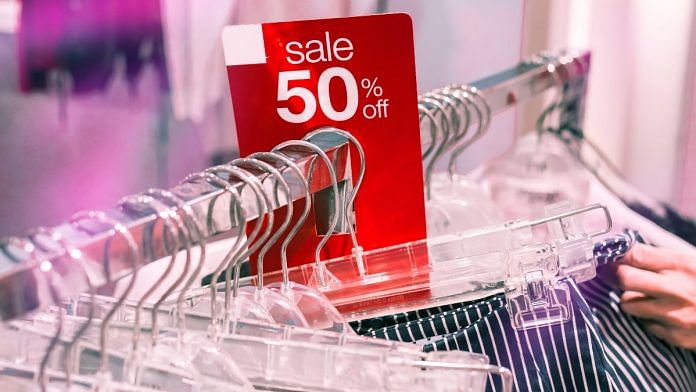Berlin’s city government has just taken the unusual step of opening a department store. But this is no typical retail outlet – the store sells only high-quality recycled and upcycled items.
It’s all part of the city’s efforts to reduce waste and protect the environment. The pop-up shop will be open on the third floor of the city’s Karstadt Hermannplatz department store, in the hip Kreuzberg district, for the next six months. If the pilot project works, more stores are planned.
Called B-Wa(h)renhaus, the store aims to attract people who might not consider shopping at the city’s many second-hand furniture and clothing shops.
Across the new store’s 650 square meters of selling space, nine vendors offer products ranging from recycled and upcycled furniture and clothing to refurbished electrical appliances and toys. For anyone who fancies a snack, there’s also an outlet selling dumplings that do good – they’re made from “excess but high-quality” ingredients.
On the floor above is a meeting space that will be used for a series of events to raise awareness of recycling and reuse, including promoting a scheme to allow shoppers to borrow cargo bikes to take their bargains home.
“Our motto is ‘new can be used’,” says Stefan Tidow, State Secretary for Environment and Climate Protection, who officially opened the store. “We want to make well-preserved used goods more easily accessible to even more people.”
Also read: ‘Recycling industry like a baby without parents’ — representatives want separate ministry
Used shopping
B-Wa(h)renhaus forms part of the city’s Zero Waste policy, endorsed by Berlin’s senate. Tidow’s initial plan is to open four more “department stores of the future”, selling good-quality second-hand goods at attractive prices.
In the long run, he wants to see similar stores in each of Berlin’s 12 boroughs to embed “used shopping” as part of the city’s lifestyle and help to end the throwaway culture once and for all.
Berlin wants to be a zero-waste city by 2030. European Commission data shows it already recycles 90% of glass and paper waste and 41% of plastics and metal. Bloomberg reports that the city has cut annual household waste per resident by 11 kilos since 2008.
Households separate their trash into five colour-coded bins for recycling and rubbish that cannot be recycled is burned in a waste-to-energy plant. The city’s recycling service says food waste used to produce biogas has to date replaced 2.5 million litres of diesel.
In their report on the circular economy, the World Economic Forum and the Ellen MacArthur Foundation call for international cooperation to reduce demand for raw materials by reusing and repurposing existing products to extend their productive lives.
“It can become the new normal to buy used goods,” Tidow says. “Used things have a future – those who give used things a second life avoid waste, save raw materials and protect the environment and the climate.”
This article was originally published in the World Economic Forum.
Also read: One Asian country after another is shutting door on waste plastic from US, UK, Australia



